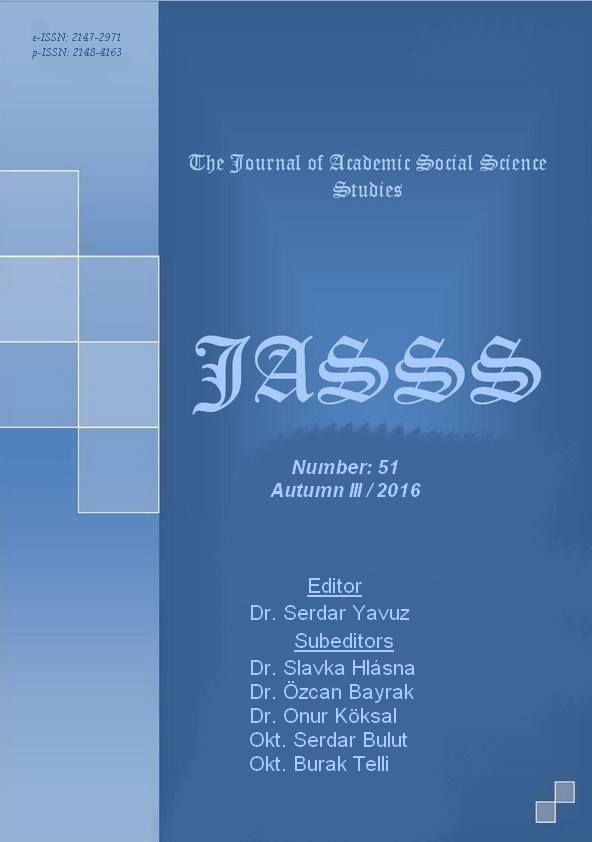ERKEN ÇOCUKLUK DÖNEMİNDE BİREYSEL VE İKİLİ GRUP ETKİNLİK PERFORMANS ALGILARI: KARŞILAŞTIRMALI DENEYSEL BİR İNCELEME
Author :
Abstract
Rekabet, insanların doğasında var olan ve çok farklı şekillerde ortaya konan bir özelliktir. Bazı araştırmacılar yaşamın bir sonsuz yarışmalar serisinden oluştuğunu düşünmektedirler. Beşikten mezara insanlar evde, boş zamanlarında, eğitim alanlarında ya da işlerinde diğer bireylerle yarışarak/rekabet ederek öne çıkarlar. Rekabet aynı zamanda okul öncesi eğitim kurumlarında çocuklar arasında da ortak bir olgudur. Bu çalışma okul öncesi dönem çocuklarının yarışmalı ve yarışmasız ortamlarda kendi performanslarını nasıl algıladıkları ve performanslarından memnuniyet düzeylerini belirlemek amacıyla gerçekleştirilmiştir. İki ayrı deney, aynı hafta içinde iki ayrı günde uygulanmıştır. Bir okul öncesi eğitim kurumuna devam eden toplam 112 çocuk (61 erkek, 51 kız) çalışmaya katılmıştır. Çocuklar minumum 46, maksimum 73 aylık olup yaş ortalamaları 61.45±6.62 ay bulunmuştur. Çocuklardan rekabet olan ve olmayan ortamda bir kule yapmaları istenmiştir. Daha sonra yüz ifadeleri ve me
Keywords
Abstract
Competing with each other seems to be a human characteristic that is expressed in a variety of ways. Some researchers think that life has become an endless series of competitions. From the cradle to the grave, people are competing to outshine each other at work, in educational settings, at leisure time and at home Competition is also a common phenomenon among children in preschool. The aim of this study was to explore to determine the satisfaction level of performance and how they perceive their own performance to competitive and noncompetitive environment for pre-school children. Two separate experiments were conducted on two different days of the same week at preschool. Total of 112 pre-school children (61 boys, 51 girls) who attended a preschool participated in the study. Children 's minimum 46, maximum 73 months old and their mean age were found 61.45 ± 6.62 months old. We asked children to make a tower competitive and non-competitive conditions. Then evaluate their performance using facial expressions and stairs were asked to scale and satisfaction. As a result, we observed that children’s stated that under non-competitive task they were 46.4% and competitive task they were 59.8% better performance. We found that children perceive their performance high. Also in both cases the majority of children responded that they felt happy.





